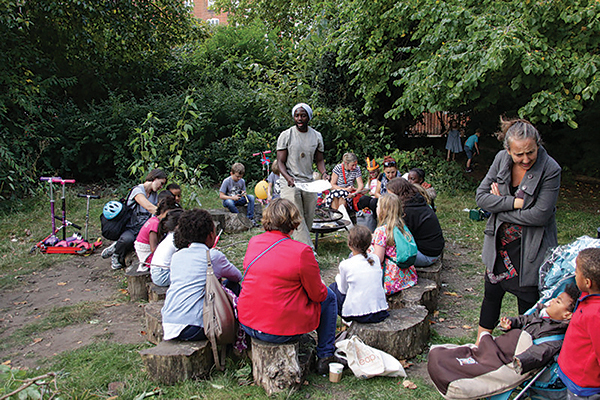The most effective way to include people is to start where they are, setting issues at the centre of their lives.
The focus of Black Environment Network is full multicultural environmental participation. We challenge the mainstream environmental movement to open up equality of opportunity to environmental awareness and active participation.
Access to healthy affordable food by disadvantaged communities looms large in the context of health and vulnerability to disease. Covid-19 has highlighted the devastating consequences of health inequalities, with the risk of dying shown to be higher in black, Asian and minority ethnic groups than in white ethnic groups.
It is astonishing that in the 21st century so many of us can grow up without ever seeing a vegetable growing in the ground, or an animal in a field. The purposeful engagement of people in urban areas, where over 80 per cent of our population now lives, is a key to unlocking their potential contribution to the sustainable food movement.
Urban food growing has exploded in recent years. Myatt’s Fields Park, near where I live in south London, is set in an area of high multicultural presence. For newcomers to see tiny seeds, almost like specks of dust, grow into onions or pak choi, which you can then eat, is like taking part in a miracle. It is a life-changing experience.
Within the older generation of particular multicultural groups, long dormant skills for growing produce from their countries of heritage become centre stage. Some three years ago, staff at Myatt’s Fields Park realised that a significant barrier is the lack of greenhouses for early growing to enable a long enough season for the satisfaction of harvest. They decided to grow plug plants for the community in their huge Victorian greenhouse.
Initially, people signed up for about 3,000. Within only three years, the demand grew to 50,000. Beyond allotments, people grow food on their balconies, their paved over front gardens or backyards.

Growing food has a phenomenally large impact, improving both mental and physical health. Eating fresh and nutritious vegetables gives great pleasure. It gets people to be active by taking them outdoors. Alongside food growing, Myatt’s Fields Park ran a Food Heroes Project, building the coming together of community.
Sharing recipes, cooking and eating together creates a setting for informal learning, where the consciousness of issues naturally emerge. The community recently took action against the use of pesticides in local parks and gardens. There is growing awareness around the use of pesticides in what they still have to buy and consume from supermarkets.
Engaging people continues to be a big job, reaching out, starting where people are. Effective action requires sound specific knowledge. The food growing movement is a prime target for the sustainable food conversation. Within such community settings, what touches the heart fuels the search for information.
Diversity and equality, inclusion, farming practice, packaging, food miles, fair trade and so on, set within local and global ethical business practices, will subsequently appear on the agenda.
I look forward to an increasing number of multicultural voices and the rising generation of activists, supported to join the demand for the sustainable food systems that will benefit all of us.
This article was initially published in the latest print issue of Wicked Leeks. You can read the full magazine online and for free via Issuu.













0 Comments